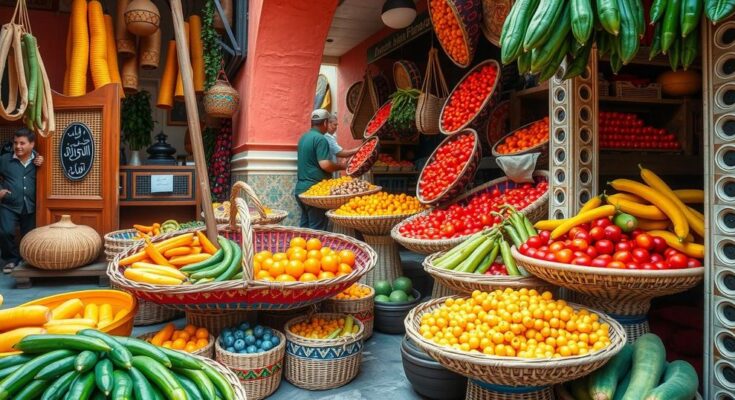Morocco is poised to import more dates for Ramadan due to local agricultural challenges, including drought, which has reduced domestic supply. Most dates in Moroccan markets come from abroad, particularly leading up to Ramadan. Recent agreements aim to bolster local date production as Moroccans continue their tradition of consuming dates during the holy month.
As the holy month of Ramadan approaches, Morocco is increasing its imports of dates to satisfy local demand. Reports indicate that this effort comes in response to the challenges posed by inadequate rainfall this season, which has been described by Minister of Agriculture Ahmed Bouari as poorer than that of the last 30 years, impacting agricultural production, particularly of cereals.
A recent analysis from FreshPlaza highlights that the majority of dates available in Moroccan markets, notably in Casablanca, are sourced overseas. With Moroccan consumers expressing a heightened interest in purchasing dates for Ramadan, an importer noted, “This year, we’re seeing even fewer Moroccan dates because of the drought in the main growing areas.”
Morocco’s reliance on foreign dates extends beyond Tunisia, as it includes imports from Egypt, Saudi Arabia, and other countries. In an effort to enhance the date palm sector, Morocco signed six agreements in October 2024 to improve agricultural practices in the Drâa-Tafilalet region, known for its date production.
Data from the Ministry of Agriculture indicate that the estimated date production for the 2023-2024 season is around 115,000 tons. During Ramadan, dates play an essential role in daily meals, with many Moroccans breaking their fast with dates, alongside milk or water. The Islamic Affairs Ministry is anticipated to confirm the official start date of Ramadan, expected on March 1, following the sighting of the crescent moon.
In summary, as Ramadan approaches, Morocco is preemptively increasing its date imports due to local agricultural challenges, particularly the effects of drought. The country’s reliance on imported dates from various countries, including Egypt and Tunisia, indicates a shift in market trends. Additionally, agreements aimed at boosting the local date sector signal a commitment to enhancing production and resilience.
Original Source: www.moroccoworldnews.com




